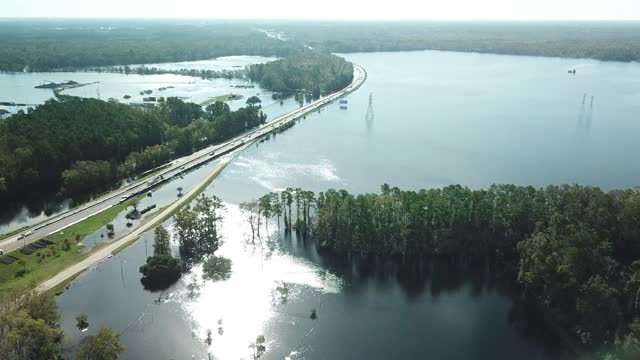What are some environmental issues in South Carolina?
Environmental issues in South Carolina vary from pollution and climate change to habitat loss and waste management. Here’s a look at some of the key challenges:
Air Pollution
- Industrial facilities, vehicle emissions, and energy production contribute to air pollution, affecting public health and contributing to climate change.
Water Pollution
- Runoff from agriculture and urban areas, industrial discharges, and untreated sewage can compromise water quality in rivers and coastal areas.
Coastal Erosion
- Rising sea levels and increased storm activities are eroding the state’s beaches, impacting tourism and local ecosystems.
Overfishing
- Overfishing in the Atlantic Ocean and local waters can deplete fish populations, impacting the ecosystem and the fishing industry.
Habitat Loss and Fragmentation
- Urbanization and land development result in habitat loss, affecting local wildlife and biodiversity.
Climate Change
- Rising temperatures and extreme weather events can have detrimental impacts on agriculture, human health, and natural ecosystems.
Deforestation
- Logging activities and land conversion for agriculture and development can result in deforestation, impacting local fauna and contributing to climate change.
Invasive Species
- Non-native species like the kudzu vine and Asian carp can disrupt local ecosystems, outcompeting native species.
Littering and Waste Management
- Improper disposal of waste contributes to pollution and can have adverse impacts on both land and marine ecosystems.
Environmental Justice
- Low-income communities are often disproportionately affected by environmental hazards, including proximity to waste facilities or polluted areas.
Pesticide Contamination
- Extensive use of pesticides in agriculture can lead to soil and water pollution, impacting human health and local ecosystems.
By addressing these environmental issues, South Carolina could improve the quality of life for its residents and protect its natural resources for future generations.
Environmental Issues in South Carolina
South Carolina faces a range of environmental challenges that impact both its natural ecosystems and human communities. One of the most pressing issues is water pollution, particularly in its rivers and along the coast. Agricultural runoff laden with pesticides and fertilizers, as well as industrial discharges and untreated sewage, compromise water quality. This not only affects aquatic life but also has implications for human health, as contaminated water sources are used for drinking, recreation, and agriculture.
Another major concern is coastal erosion, exacerbated by rising sea levels and increased storm activity due to climate change. South Carolina’s coastlines are vital for tourism, a significant contributor to the state’s economy, and home to important ecosystems like salt marshes and estuaries. The erosion threatens property, wildlife habitats, and the state’s economic well-being. Preservation efforts are underway, but the long-term sustainability of these coastal areas remains uncertain.
Air pollution also remains a challenge, stemming from industrial activities, vehicular emissions, and energy production. Poor air quality has direct health implications for residents, increasing the risk of respiratory conditions and other illnesses. It also contributes to broader climate change issues, which in turn affect South Carolina in the form of more extreme weather events and temperature changes. Addressing these environmental issues is crucial for safeguarding the state’s natural resources and improving the quality of life for its inhabitants.





